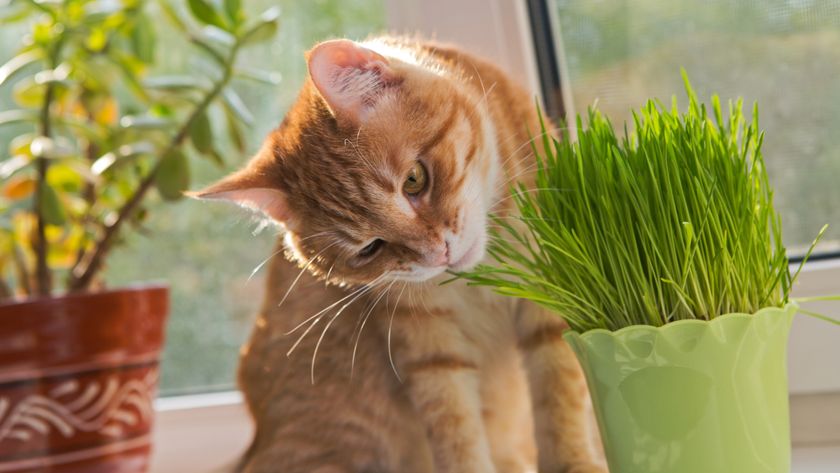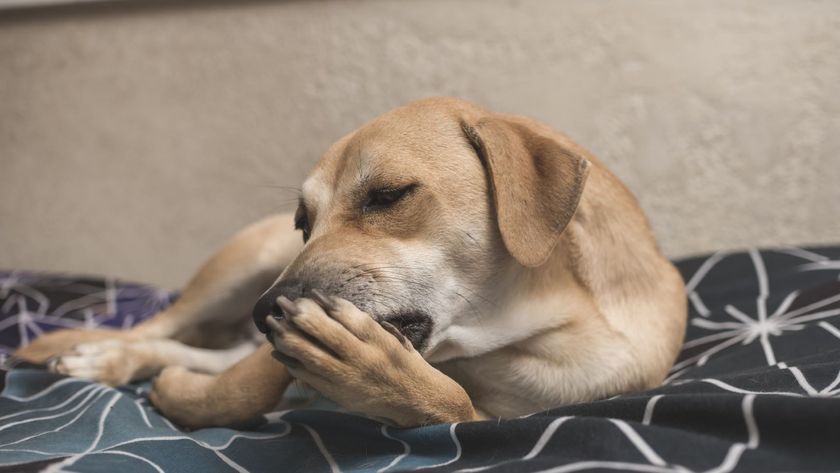How to get rid of cat pee smell around the home
Has your cat been relieving itself in your home, leaving a lingering smell in the air and on your belongings? Keep it at bay with these handy tips and tricks.
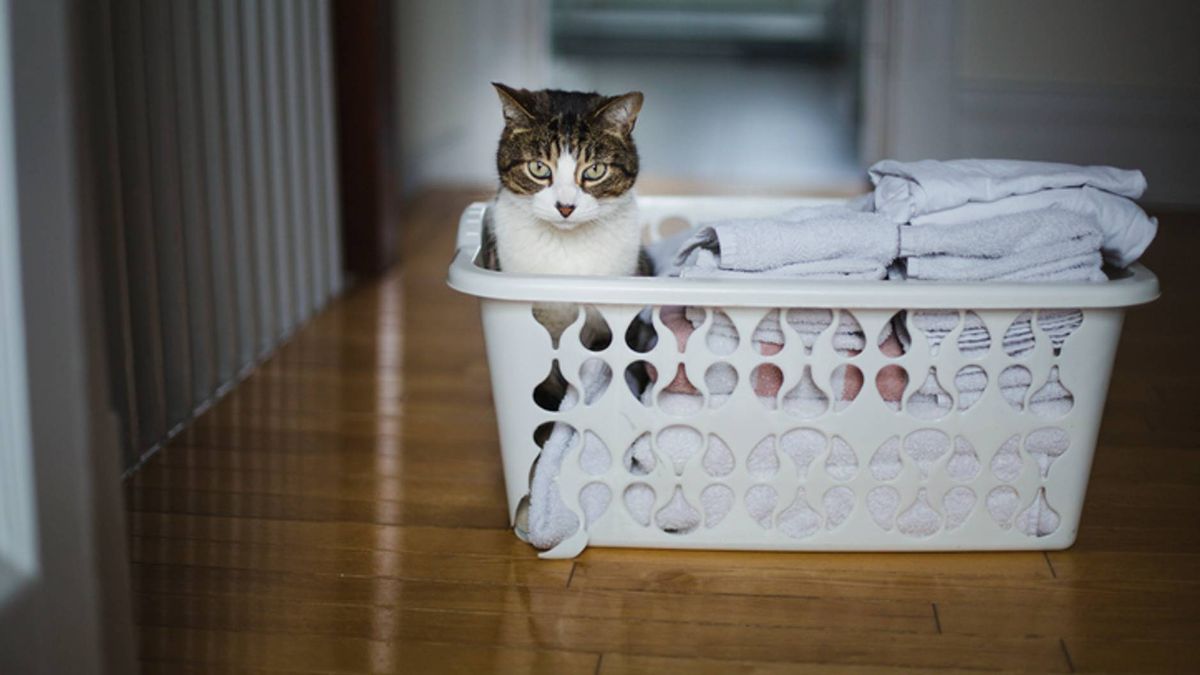
If you’ve notived your cat peeing outside the litter box, leaving a nasty stench behind, you might be desperate to know how to get rid of the cat pee smell.
There are a number of reasons why your cat is peeing in the house in the first instance, including medical issues or stress-related anxiety. It could be a change they haven’t adjusted to, such as a house move, a new pet, or if you’ve changed something significant in their usual environment, such as food or litter. Despite what you might think, they’re not getting their own back for something you’ve done; they’re always trying to tell you something.
To tackle the dreaded cat pee smell, the first thing you’ll want to do is track down where they’ve done the deed and clean it up as soon as possible as the smell only gets worse. If you can’t find it, try UV light. The guide below will help you tackle different areas that may be smelling.
The next step is knowing how to stop your cat peeing in the house so it doesn’t happen again. If you find out why they’ve changed their habits you can make changes to stop repeat offending. This could include making sure their litter box is always clean by researching the best self-cleaning cat litter boxes, moving their litter box or adding more around your house. But the priority is getting rid of the smell first.
Why does cat pee smell?
Cat pee is not that different from other animal urine, but the smell is awful and only gets worse if not dealt with. The bacteria in the urine breaks down, letting off an ammonia-like, stale pee smell. As time goes by and it decomposes further, mercaptans, the compounds that give skunk spray its pungent smell, are released.
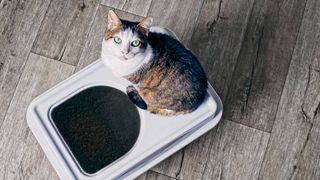
How to get rid of cat pee smell
Around the home
When you see a patch of cat pee, you may run towards it with a cloth and furiously try to scrub out the stain to get rid of it, but this is not the right course of action. Don’t scrub it! You’ll just rub it into the surface more and make it worse. Instead, use cold water and paper towel to blot up as much of the cat pee as possible. You could also use a wet vacuum for this if you have one.
Then, you need to neutralize the odor with an enzymatic cleaner. This will break down the uric acid in the cat pee into gases, which will then evaporate, getting rid of the bacteria causing the smell.
Baking soda and vinegar (mixed with equal measures of water) can also be used as these will neutralize the alkaline salts in the dried urine. While vinegar also has a distinctive aroma that some may not like, this smell will go away in a few days taking the pee odor with it.
If the stain and smell are persistent, repeat the full process then leave to dry. Top tips include avoiding heat (so no washing machines or tumble dryers), and avoid products that contain ammonia.
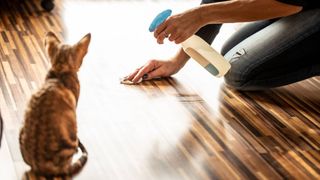
On carpet
- Using paper towels or a clean cloth blot the area of the carpet that needs cleaning to soak up the urine.
- Rinse the cloth with water and continue to blot. You can also use a wet vacuum if you have one. Do not use a steam cleaner as the heat will set the stain instead of removing the smell.
- Douse the area with an enzyme cleaner. Do not just spray it as this won’t be as effective.
- Leave the enzyme cleaner on to set in for about 10-15 minutes. Then blot this up using a clean cloth.
- While the carpet dries, you won’t want your pet visiting the spot so cover it over with a piece of aluminium or an upside down laundry basket.
- Once dry, if the smell hasn’t disappeared, repeat the process or just reapply the enzyme cleaner. You could also apply baking soda, leaving it on for an hour before vacuuming it off.
On wood and other surfaces
If your floors are sealed wood or tile, you can simply wash away the cat pee with water and hydrogen peroxide (3%). Just make sure you check a patch of floor first in case you have floors that can be damaged. Blot the spot with water, then leave the mixture on for a few minutes, blot again with water and leave to dry.
Baking soda and vinegar and water can also be applied to hardwood floors. However, if your floors are unsealed wood, the danger is that the urine will soak into the floor and you’ll never be able to get rid of the smell. In this case, follow the steps below:
- Use a cloth and water to blot up the urine.
- Don’t use enzyme cleaner as this could damage your floor. Instead, douse in vinegar, allow to sit and then blot with more water.
- Blot to get rid of as much liquid as possible. You can also add a small a bit of baking powder, leave to sit and then wipe away to help eliminate the smell.
- If you think your cat is likely to re-offend, seal your floors!

On a mattress, couch or cushions
- Soak the area of the soiled mattress with water and blot with a cloth or paper towel.
- Douse in enzyme cleaner and leave to set in for about 15 minutes. Cover with plastic to stop your cat from re-offending on the same spot.
- Blot with a dry cloth and leave to dry fully.
- Repeat the process if necessary. You can also protect your mattress with a waterproof mattress cover if your cat is playing up. Baking soda can also be used on your couch or mattress. Apply, leave for an hour and then vacuum it up.
- As an added step, try spraying a fabric pet odor eliminator like Febreze on the area to give it a final freshen up.
On clothes
You might want to throw your clothes into the wash immediately if your cat pees on them, but don’t! The hot water will make the smell worse and set the stain. Instead, follow these steps:
- Blot them with a mixture of cold water and 1/2 cup of oxygen bleach for 2-3 hours.
- Then soak in a mixture of one part vinegar and three parts water.
- Finally add baking soda for 10-15 minutes. The clothes can then go into the machine on a cold wash.
- Dry your clothes outside. Do not put them in the tumble dryer as, again, this will have the opposite effect of what you want.
In the air
If you find the source of the problem and attack it immediately you should be able to get rid of the smell in a couple of hours. However, you can also help eliminate the smell from the air by spraying some Febreze odor eliminating spray and opening the windows. Or add baking soda to your cat’s litter box to absorb the smells being released into the air.
To freshen up a smelly house, try making this homemade air freshener. Mix 1 cup crushed, dried herbs such as rosemary, southernwood or lavender), 1 tsp ground cloves, 1 tsp cinnamon and 1 tsp of baking soda together. Sprinkle this over your carpet, leave for 10-20 minutes and then vacuum. This should fill the air with a much more pleasant smell.
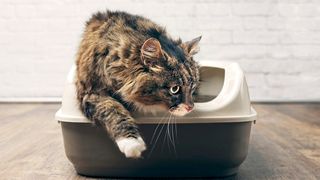
Outside
If your cat is peeing outside and it’s starting to smell you can use similar solutions such as baking soda and vinegar. However, if it’s warm outside the uric acid in the cat’s urine can recrystallise so it’s a good idea to spray the area with an enzyme cleaner and water to help break up the uric acid into gases that evaporate.
Allow the enzyme cleaner to work for about 10 minutes and then leave it to dry. If possible, cover the area to stop your cat from accessing it again. The best time to rid the outside area of cat pee smell is at dusk as the longer it takes to dry the better.
If you’re worried about any of your belongings, test a small area first and if you don’t want to clean an item at home you could try an ozone generator, a professional pet odor treatment.
How long does cat urine smell last?
If you do not tackle the problem quickly, the smell of cat urine not only gets worse, but it can last forever. If you follow these steps, it could be eliminated within a few hours.
What can deter a cat from peeing in the home?
There are a number of things you can try to stop your cat from peeing in your home. By getting rid of the smell you are already helping prevent future reoccurrences as cats often like to return to the same area to relieve themselves.
After eliminating the smell, you should find the cause of the problem. Take a look at why your cat may be urinating in the home. Is it a behavioral issue or a health issue?
If it’s behavioral, try looking at what has changed in your cat’s environment that may be causing it stress or frustration. Then try fix this. So if you’ve changed their food or litter, perhaps change it back.
If you’ve moved or got a new pet, try find ways to keep your cat happy by keeping their litter box clean, giving them different litter box options and lots of love and attention. It’s a good idea to get your cat neutered or spayed at six months to avoid your cat spraying to mark its territory. If it’s a health issue such as urinal tract infection, visit your vet to find a solution. Hopefully, your cat pee smelling days are behind you now.
PetsRadar Newsletter
Get the best advice, tips and top tech for your beloved Pets










